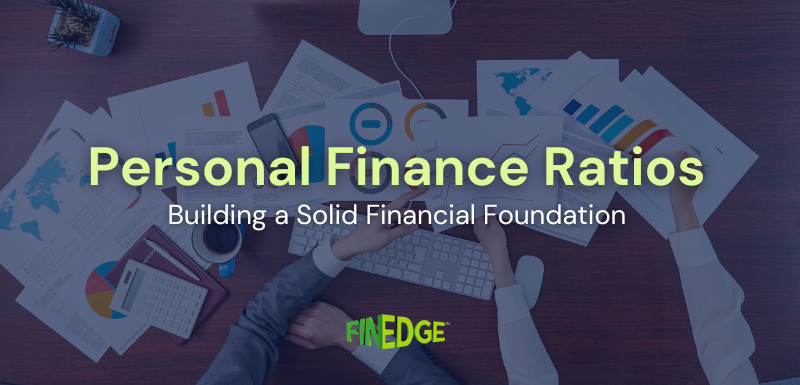3 Money Mistakes Young Professionals Make

Young professionals often make the mistake of excessive speculation, overcautious risk-taking, and buying unnecessary life insurance. To build wealth, invest in long-term growth stocks, avoid short-term trades, and focus on the right financial products for your needs.
The experience of your first pay check is surely one to savour and remember fondly for your entire lifetime. However, young professionals tend to make a few all too common mistakes with their newly earned money. Here are 3 of the most common ones.
Excessive Speculation
First, they may become overtly speculative – hastily trading on stock tips, for instance. In our experience, reckless trading can only have one long term outcome (beginners luck aside); and it’s not usually a positive one. Embittered by such a poor initial experience, many young professionals turn away from the stock markets for good, ignoring all the much espoused benefits of staying put for the long term in quality stocks.
It’s a well-publicized fact that in the long run, stocks outperform every other asset class handsomely. It’s difficult to quantify in Rupee terms then, just how detrimental such an early experience can be in terms of opportunity costs. Young professionals are therefore ill-advised to fritter away their earnings by way of mere speculation, but are encouraged instead to invest selectively in a portfolio of stocks of blue chip companies in a systematic, staggered manner.
Excessive Risk Aversion
The second mistake lies in placing oneself at the opposite end of the risk tolerance spectrum. Many young professionals adopt an overcautious approach right off the bat; only committing their monies to PPF accounts or deposits, for instance. What’s more, this circumspect attitude towards investing is often adopted at the behest of well-meaning parents or grandparents! Unfortunately, this habit can severely impact the quantum of achievable wealth creation a decade down the line.
Remember this: the one good thing about money is that over the long run, it can produce more money by way of compounding! By becoming risk avoidant so early in their lives, young professionals rob their future selves of the prospect of putting together sizeable corpuses for their later years. Rs. 5,000 saved in a Mutual Fund SIP for 25 years can compound to Rs. 1 Crore – in a PPF account, it’ll never grow beyond Rs. 50 Lacs. For your long-term goals – Mutual Funds Sahi Hai!
Buying Life Insurance When it’s Not Needed
Third, young professionals without dependants may purchase life insurance, just to save taxes in the yearend rush to submit their documents to their HR Managers. Barring a few rare circumstances in which your aging parents are dependent on you from the day you earn your first pay check, this would constitute a foolish act.
A few low cost ULIP’s (which constitute a more aggressive investment) may make a tad more sense than traditional policies. But why should you pay for a life cover when you don’t require it?
In conclusion - here are the thumb rules to follow as a young professional: don’t speculate in stocks, derivatives, commodities and other “weapons of wealth destruction”. Invest in long term growth stocks (preferably blue chip stocks) with a time horizon of five to ten years. Start an SIP in an aggressive fund and step it up by 10% annually – one of these SIP’s should be an in a tax saving mutual fund or ELSS (Equity Linked Savings Scheme) which will double up as a tax saving instrument. Avoid low risk, low return investments. And lastly, make sure that you critically evaluate the actual need for a life cover before you opt for one.
FAQs
Why is excessive stock market speculation risky for first-time investors?
Excessive speculation often involves chasing tips or trends without understanding the fundamentals. For young professionals, this can lead to early losses and discourage long-term investing. A better approach is systematic investing in blue-chip mutual funds or equities aligned to long-term goals.
I have just started earning—should I only invest in safe options like PPF or FDs?
While PPF and FDs offer safety, relying solely on them may limit your wealth-building potential. As a young professional with a long investment horizon, you can afford to take calculated risks through SIPs in mutual funds, which offer better inflation-adjusted returns over time.
Do I really need to buy life insurance when I have no dependents?
If no one is financially dependent on you, life insurance may not be necessary. Many young professionals buy policies just to save tax, but there are better options like ELSS (Equity Linked Savings Schemes) that serve both investment and tax-saving purposes.
What’s the best investment strategy for young professionals starting their careers?
Start early, invest regularly through SIPs, and aim for long-term goals. Allocate funds to equity mutual funds or growth-focused portfolios, and increase your SIP amount annually. Avoid speculative instruments or unnecessary insurance policies.
How can I avoid making emotional money decisions early in my career?
Work with a financial advisor who offers goal-based planning. Platforms like FinEdge’s DiA help align investments with your real-life goals, reducing the chances of impulsive or emotionally-driven financial choices.
Your Investing Experts
Relevant Articles
Understanding the Financial Planning Pyramid: Building Your Finances the Right Way
Most people juggle several financial goals at once, an emergency fund, retirement planning, a child’s education, or even short-term lifestyle goals like travel. Without a proper framework, it becomes difficult to decide what to tackle first. The Financial Planning Pyramid offers a simple and effective way to bring structure to your financial life. It ensures that essential protections are in place before you start saving and investing for long-term wealth.
Personal Finance Ratios You Should Understand Before You Start Investing
Successful investing begins long before you pick funds or set return expectations. It starts with understanding your financial foundation, how much you earn, how much you spend, and how much is left to invest consistently. These simple but powerful personal finance ratios offer a clear view of your financial health and help you make informed, goal-aligned decisions.
Why Mutual Funds Are the Smartest Way to Build Your Child’s Marriage Fund
Indian weddings are beautiful but expensive affairs, and their costs are rising every year. Mutual fund SIPs can help you plan ahead, ensuring your child’s big day is celebrated without financial stress.
.png)


.png)